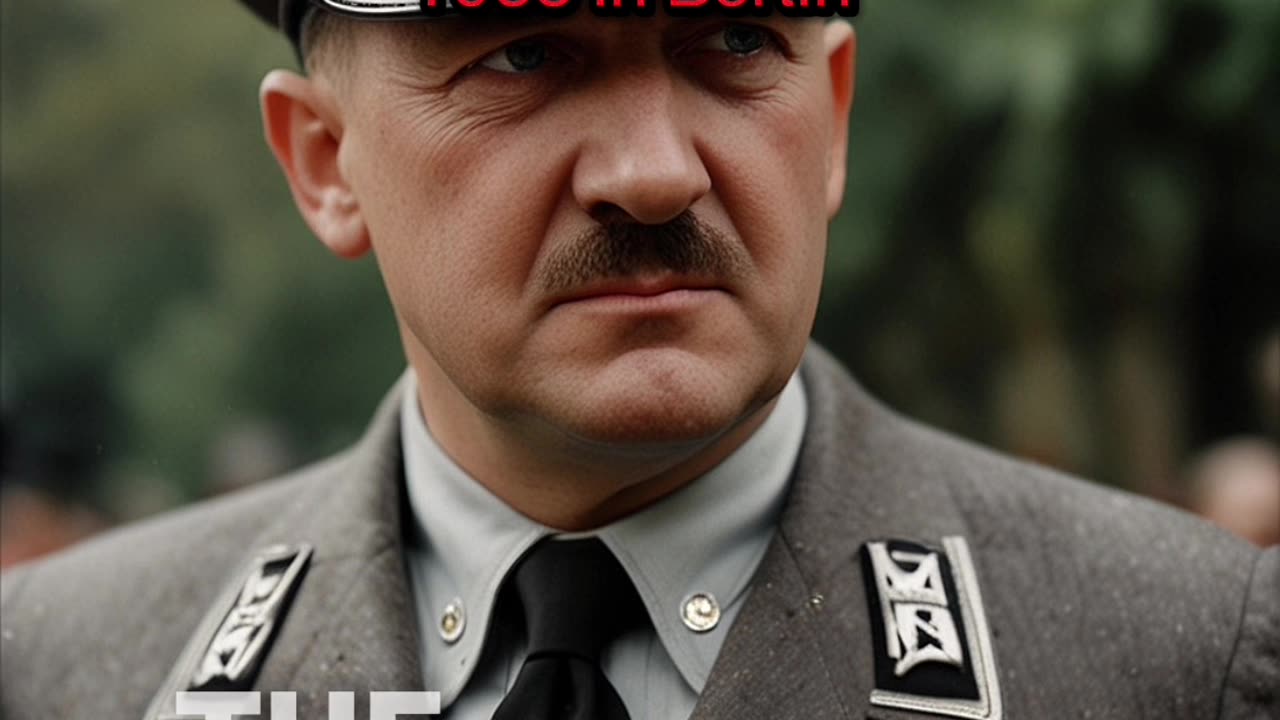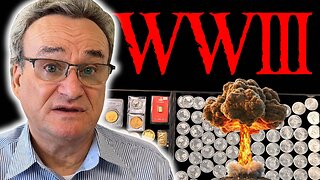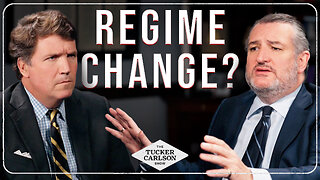Premium Only Content

Hitler's Speech in Berlin - January 30, 1933
Background Leading Up to Hitler's Speech in Berlin - January 30, 1933
Political Instability: By early 1933, the Weimar Republic was facing severe political instability. Economic turmoil caused by the Great Depression had led to widespread unemployment and social unrest.
Rise of the Nazi Party: The Nazi Party had become a significant political force in Germany. In the July 1932 elections, it emerged as the largest party in the Reichstag, but lacked a majority to govern outright.
Appointment as Chancellor: After a series of political maneuvers and under pressure from influential conservative figures, President Paul von Hindenburg appointed Adolf Hitler as Chancellor of Germany on January
30, 1933.
Key Points of Hitler's Speech:
A New Beginning: Hitler emphasized that January 30, 1933, marked a new beginning for Germany. He portrayed his appointment as a turning point that would lead the nation out of crisis and toward revival.
Restoration of National Pride: Hitler spoke of restoring Germany's national pride and honor. He promised to rebuild the country, emphasizing themes of unity, strength, and renewal.
Economic Revival: He highlighted plans for economic recovery, addressing the dire state of the economy and the need to reduce unemployment. Hitler proposed a range of measures to stimulate industry and create jobs.
Critique of Previous Governments: Hitler criticized the Weimar Republic and previous governments for their failures and inability to address Germany's problems. He promised decisive action and effective leadership.
Call for Unity: Emphasizing the need for national unity, Hitler called on all Germans to support the new government and to work together for the common good. He stressed that unity and collective effort were essential for the nation's success.
Analysis:
Promise of Renewal: Hitler's speech aimed to present his chancellorship as a fresh start for Germany. By framing it as a new beginning, he sought to inspire hope and confidence among the German people.
Restoration of Pride: The focus on restoring national pride and honor was designed to resonate with Germans who felt humiliated by the post-World War I conditions and the Treaty of Versailles. Hitler promised to revive Germany's status and dignity.
Economic Solutions: Highlighting plans for economic revival was crucial in addressing the immediate concerns of the population. By promising to tackle unemployment and stimulate industry, Hitler aimed to gain broad support for his government.
Critique of the Past: By criticizing previous governments, Hitler distanced himself from the perceived failures of the Weimar Republic. This critique helped to position the Nazi Party as the solution to Germany's problems.
Appeal for Unity: The call for national unity was a strategic move to consolidate support and to mobilize the German people behind the new government. Hitler stressed that collective effort and solidarity were necessary for achieving the nation's goals.
Overall, Hitler's speech on January 30, 1933, was a carefully crafted address that aimed to present his appointment as Chancellor as a turning point for Germany. It promised economic revival, restoration of national pride, and effective leadership while calling for unity and collective effort from the German people. The speech marked the beginning of a new era in German politics under Nazi rule.
-
 LIVE
LIVE
Cheyballa718
48 minutes agoNew Fortnite Update
83 watching -
 29:24
29:24
Michael Franzese
23 hours agoRoger Stone EXPOSES the CIA’s Role in JFK’s Murder
17.4K6 -
 1:54:24
1:54:24
The Quartering
3 hours agoTrump TEASES Iran Strike, Supreme Court UPHOLDS Trans Ban, Tucker Vs Ted Cruz & More
105K39 -
 LIVE
LIVE
The HotSeat
1 hour agoPete Is Under Attack At Capitol Hill + That Big Beautiful Flag!
729 watching -
 23:52
23:52
Silver Dragons
2 hours agoBullion Dealer Reveals Best GOLD or SILVER to Buy RIGHT NOW
5.7K1 -
 2:00:20
2:00:20
Tucker Carlson
4 hours agoTucker Confronts Ted Cruz on His Support for Regime Change in Iran
112K444 -
 LIVE
LIVE
Barry Cunningham
4 hours agoPRESIDENT TRUMP PRESSER | SUPREME COURT DECISION | DEMOCRATS RUNNING SCARED AND MORE NEWS!
1,270 watching -
 1:02:13
1:02:13
Crypto Power Hour
7 hours ago $0.28 earnedCrypto Price Swings, What Every Investor Needs To Know
13.4K2 -
 1:06:04
1:06:04
Jeff Ahern
2 hours ago $0.26 earnedNever Woke Wednesday with Jeff Ahern
17.7K4 -
 12:07
12:07
China Uncensored
2 hours agoI Came Back To THIS?!
16.3K7